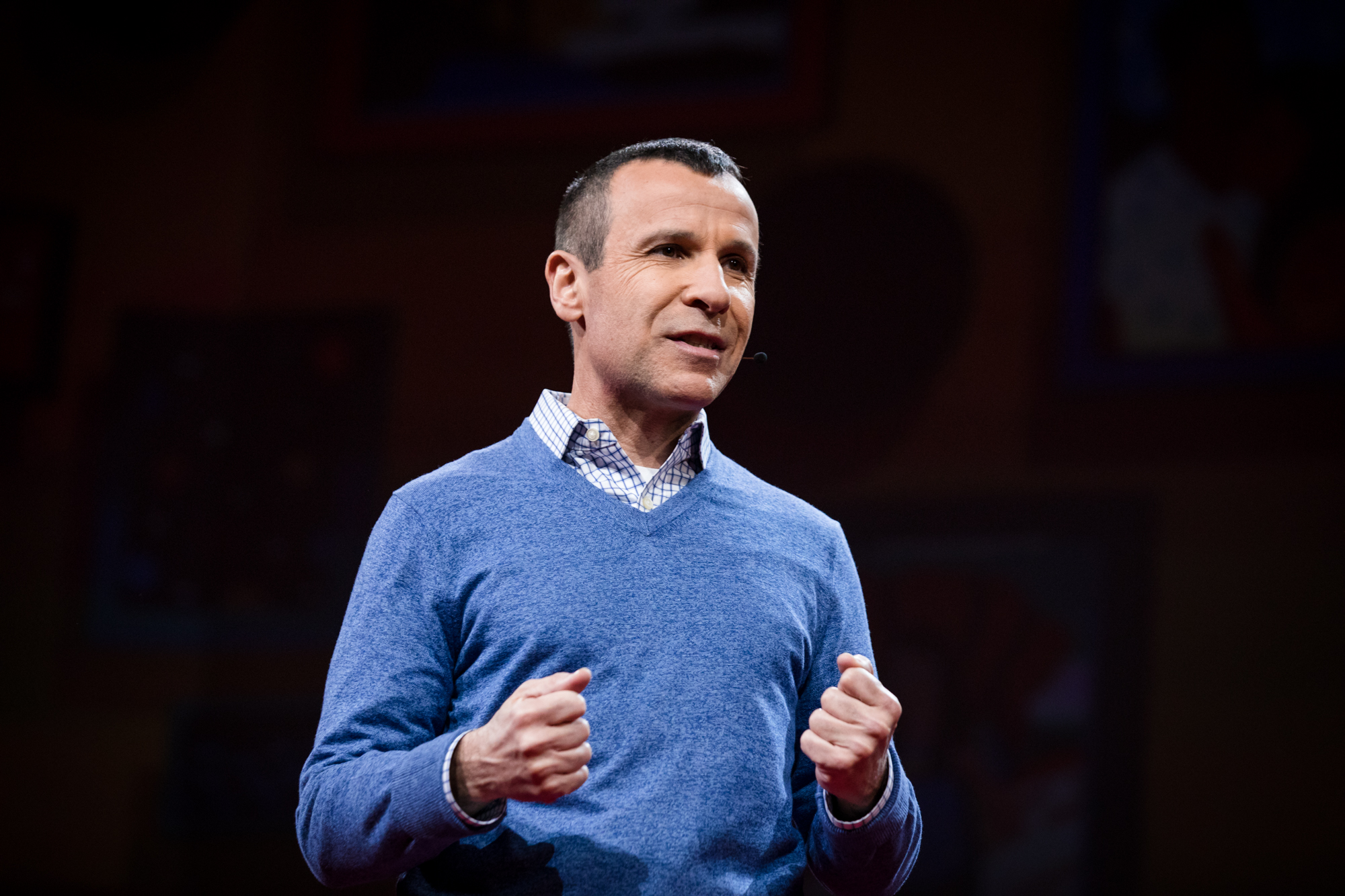
Psychologist Guy Winch tells us how to fix a broken heart at TED2017, April 27, 2017, Vancouver, BC, Canada. Photo: Bret Hartman / TED
“Why do the same coping mechanisms that get us through all kinds of life challenges fail us so miserably when our heart gets broken?” asks psychologist Guy Winch. For the past 20 years, Winch has counseled people of all ages reeling from the blow of a breakup, and in this talk, he explains why heartbreak is so severe — and shares some tools and tactics the brokenhearted can use to move on.
Above all, he says: Don’t trust your instincts. Heartbreak causes such dramatic emotional pain, says Winch, that our mind tells us the cause must be equally dramatic. But often it’s not — often the reason a relationship ends is as simple as someone waking up one morning and deciding they no longer feel the way they once did. And while Winch confirms that you need closure to move on, you shouldn’t play detective and sift through your memories or your ex’s Facebook looking for clues. Those behaviors only fuel your obsessive mind, and they don’t help you heal. Winch says, either take the reason you were offered or decide on one yourself — and then put the question to rest.
Instead, rely on your reason. Make an exhaustive list of all of your ex’s worst qualities (their nail-biting, their chronic lateness …) and keep it on your phone. Consult it whenever your mind starts spinning a fantasy narrative about your ex or playing a highlight reel of your relationship’s “best of” moments. And if you’re already in too deep, too distraught to remember your ex as anything other than perfect, Winch suggests cautiously asking your friends for their input.
Fill in the gaps. “Heartbreak is a complex psychological injury,” says Winch, and recovering from one is not easy. Not only have you lost a lover and a companion but a social network, a routine, a rhythm. To recover, Winch urges you to identify these voids in your life — the voids in your identity, the gaps in your social life, the lost activities, even the empty spaces on your wall where pictures used to hang — and find ways to fill them.
We grieve a heartbreak just like any other significant loss. Heartbreak can provoke clinical depression, impair cognition and even lower immunity. But whereas we once had to rely on time and social support to get over an ex, we now know what helps. If you avoid the mistakes that set you back, says Winch, you can significantly minimize your suffering — and heal faster.